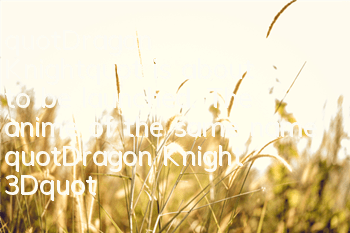Except in 2008 and 2016, Ubisoft released a major sequel to the Assassin's Creed series almost every year after 2007. In 2014, they even released two: Assassin's Creed: The Rebellion and Assassin's Creed: The Revolution.
We all know that each of Assassin's Creed will be developed by different teams of Ubisoft, which is no longer a secret, but we never know the details.
It wasn't until last month's GDC in San Francisco that the series director's speech gave us a chance to find out. Jean Gaidon, director of the Assassin's Creed series, said: "The only way to achieve such frequent game releases is to develop the game at the same time for several core teams, and they are not making the same game yet, which is a new attempt for us."
Of course, this may be a new way of game development for Ubisoft, but Activision has used a similar approach when developing the Call of Duty series. Then he showed us a chart. The chart shows the division of labor between Ubisoft's various studios developing Assassin's Creed over the past 10 years.
*Note: CT MTL is Ubisoft Montreal Studio; CT SING is Ubisoft Singapore Studio; CT SOFIA is Ubisoft Sofia Studio; CT QUEBEC is Ubisoft Quebec Studio.
As he showed, the first studio in Montreal, which completed the first generation of Assassin's Creed, then began the development of Assassin's Creed 2 (released in 2009), while Ubisoft Singapore Studio provided them with the necessary help. While these two studios were developing "Assassin's Creed: Brotherhood" (released in 2010), Studio 2 Montreal began the development of "Assassin's Creed 3" (released in 2012).
Surprisingly, according to Gaidong's chart, as the first game in the series to target this generation (PS4/Xbox One) console, the development of "Assassin's Creed: The Revolution" released in 2014 was even earlier than the development of "Assassin's Creed: The Black Flag" released in 2013. And the creative director of "Assassin's Creed: Black Flag" is Jean Gaidong.
But Gaidong's picture obviously simplifies the facts. Patrick Desletz, the founder of the Assassin's Creed series and the creative director of the first three works of Assassin's Creed, left Ubisoft during the development of Assassin's Creed: Brotherhood, which also made the development of the Assassin's Creed series from Brotherhood to The Revolution not as smooth as it seems.
As shown above, the green and gray circles corresponding to Ubisoft Quebec Studios represent their expanded content for Assassin's Creed 3 and Assassin's Creed: Black Flag, which is well received by the latter."Assassin's Creed: Scream of Freedom" was once released as an independent game. After completing the production of the two expanded content mentioned above, Quebec Studio immediately entered the development of Assassin's Creed: The Hero, which is also a high-quality work with a unique style.
Just like the way the UN Security Council works, each of Ubisoft’s studios has their own positioning and division of labor, and most of them serve as supporting roles. Most of Ubisoft's big production games are done by these studios, including of course the Assassin's Creed series. For example, the dramatic hidden location missions in the early Assassin's Creed game were all handled by Ubisoft Singapore, and they later switched to the development of the naval battle part of "Black Flag". Now, most of Ubisoft Singapore's energy is invested in the development of Ubisoft's new game "The Battle of the Sea".
Getong said that Ubisoft's game development method has changed from having a "collaborative studio" to today's "joint development". For the former, the content that the collaborative studio is responsible for is often cut off. But the latter, he mentioned, makes the contribution of each studio more an integral part of the game.
To show how the above mentioned development method was implemented in Assassin's Creed: Origins, he showed a large map in the game. The red and blue areas are produced by Ubisoft Sofia Studio (based in Bulgaria) and Ubisoft Singapore Studio, respectively.
Note: The red area above the picture is responsible for Ubisoft Sofia Studio, including the tombs, pyramids and mission designs; the lower left is responsible for Ubisoft Bucharest Studio, including the design of the gladiatorium and racetracks; the lower right is responsible for Ubisoft Singapore Studio, including the design of the waters, naval battles and missions.
"Assassin's Creed: Origins wouldn't be what it is without the participation of these two studios. They were responsible for producing a large amount of game content, including game world building, mission design and development of major systems."
"For those who are exploring parts of the northwest of Assassin's Creed: Origins, I'm sure they will notice that there are different development teams behind that area than other areas. For example, the missions in that area have a more complex internal connection than other areas."
It is no surprise that Ubisoft Sofia Studio completed their development tasks in Origins with high quality. After all, Gaidong's chart also reminds us that 2014's "Assassin's Creed: The Rebellion" was developed by this studio leader.
Now, people are starting to speculate on which studio will be responsible for the next "Assassin's Creed". If nothing unexpected happens, Ubisoft QuebecThe studio should take on this heavy responsibility — unless the remaining staff at Ubisoft Montreal Studio 1 are ready for the start of the next cycle.









